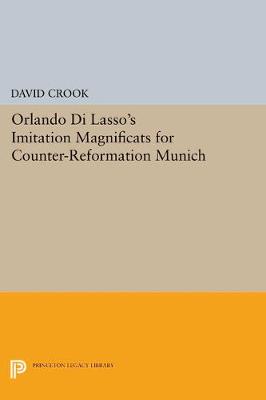After the Mass Ordinary, the Magnificat was the liturgical text most frequently set by Renaissance composers, and Orlando di Lasso's 101 polyphonic settings form the largest and most varied repertory of Magnificats in the history of European music. In the first detailed investigation of this repertory, David Crook focuses on the 40 parody or imitation Magnificats, which di Lasso based on motets, madrigals and chansons written by such composers as Josquin and Rore. By examining these Magnificats in their social, historical, and liturgical contexts and in terms of composition theory, Crook opens a new window on the breadth and subtlety of an important composer often harshly judged on his use of pre-existent music. In a section on compositional procedure, Crook explains that di Lasso abandoned the traditional eight psalm-tone melodies in his imitation Magnificats, considers the new ways he found to represent the tones, and describes how di Lasso's experimentation reflected the complex relationship between mode and tone in Renaissance theory and practice.
- ISBN13 9781400863785
- Publish Date 14 July 2014 (first published 25 July 1994)
- Publish Status Active
- Publish Country US
- Imprint Princeton University Press
- Format eBook
- Pages 312
- Language English
- URL http://degruyter.com/search?f_0=isbnissn&q_0=9781400863785&searchTitles=true
